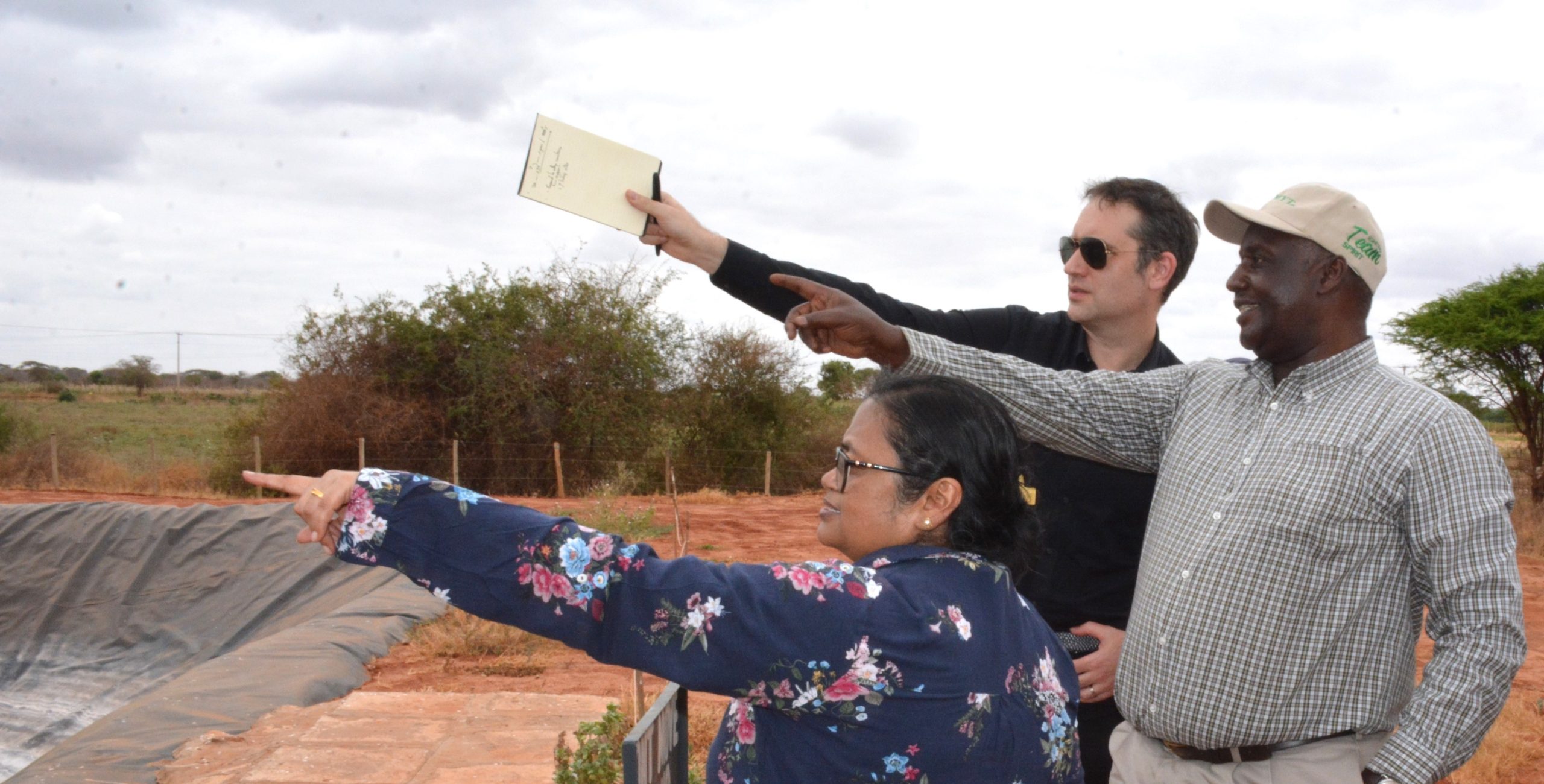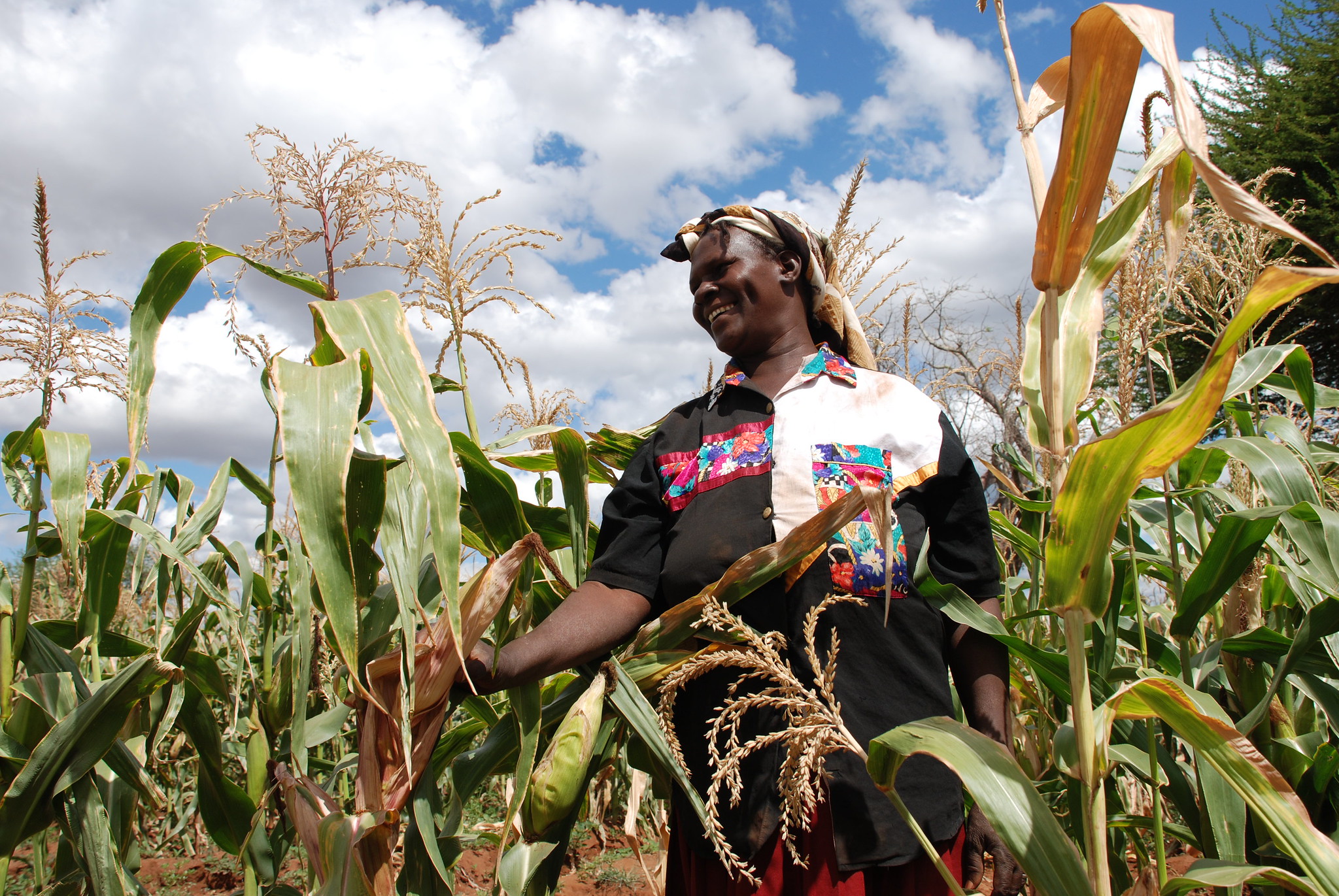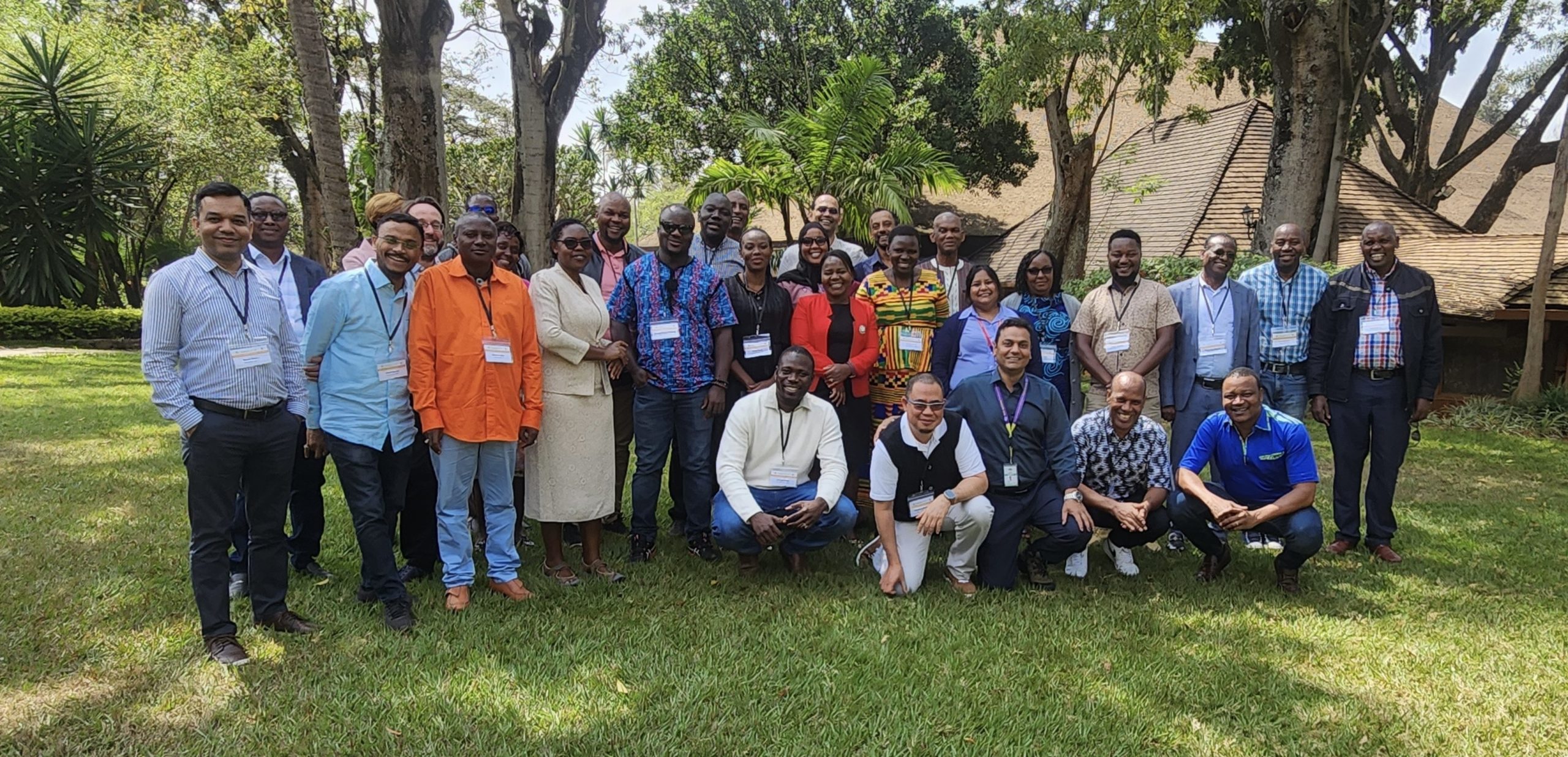
Partners from the Africa Dryland Crop Improvement Network (ADCIN) from 16 institutes in Africa came together for a four-day workshop in Nairobi, Kenya, during 19-22 September 2023, to critically review and optimize breeding pipelines for newly formed breeding programs. The meeting provided an opportunity for multidisciplinary scientists to better understand each other’s significant roles and contributions in achieving optimized breeding pipelines.
Nine female and 28 male scientists working across 14 countries made up the group of experts at the workshop, which included crop breeders, quantitative geneticists, crop protection scientists, genomics experts, and data analysts. Together, they collaboratively developed, assessed, and refined the various stages and processes of breeding pipelines. Most participants were crop breeding leads from the national agricultural research and extension systems (NARES) and CGIAR Research Centers, as well as members of the Breeding Informatics Working Group A, the first of its kind as a strategic leadership group of crop breeding experts.
The workshop sponsored by CIMMYT focused on improving genetic gains across six crops: chickpea, pigeon pea, finger millet, pearl millet, groundnut, and sorghum. The workshop was organized by CIMMYT experts, Abhishek Rathore, breeding data and informatics expert, Keith Gardner, quantitative geneticist, and Roma Rani Das, biometrician, and quantitative geneticist experts from the CGIAR Accelerated Breeding Initiative, Dorcus Gemenet and Christian Werner.
Multidisciplinary expertise in action
Under the guidance of the Associate Program Director and the Breeding Lead for Dryland Crops, Harish Gandhi, participants engaged in an array of advanced genetic approaches, statistical techniques, and quantitative concepts presented by the participating experts from CIMMYT and CGIAR Accelerated Breeding.
Each breeding program schema was reviewed from detailed quantitative genetic aspects and agreed project criteria, including choosing parents, the optimum number of parents, crossing designs, the number of generations, methodologies, testing strategies, and analytical frameworks. The group deliberated on the breeding strategies tailored for respective market segments and target product profiles to further improvise and optimize breeding pipelines to enhance the programs’ efficiency.
Agreements were reached on the number of founder parents, the number of crosses and progenies in various generations, line development method, evaluation and testing strategy, time until parental selection (cycle time), marker assisted selection (MAS), genomic selection (GS) strategy, making routine use of molecular markers for QA/QC. The team also finalized the breeding strategies tailored for respective market segments and target product profiles to further improvise and optimize breeding pipelines aimed at higher genetic gains.
In coordination with crop breeders from CIMMYT, the NARES dryland crop breeding leads presented the current schematics of breeding pipelines for both line and hybrid breeding, highlighting the market segment, Target Product Profile (TPP) and Target Product Environment (TPE).
The breeding informatics team also showcased the upcoming Dryland Crops Trial Information System dashboard, a one stop shops to capture, host, and provide information on the trials organized by the network’s NARES breeders across Africa.
Collaboration for genetic gains
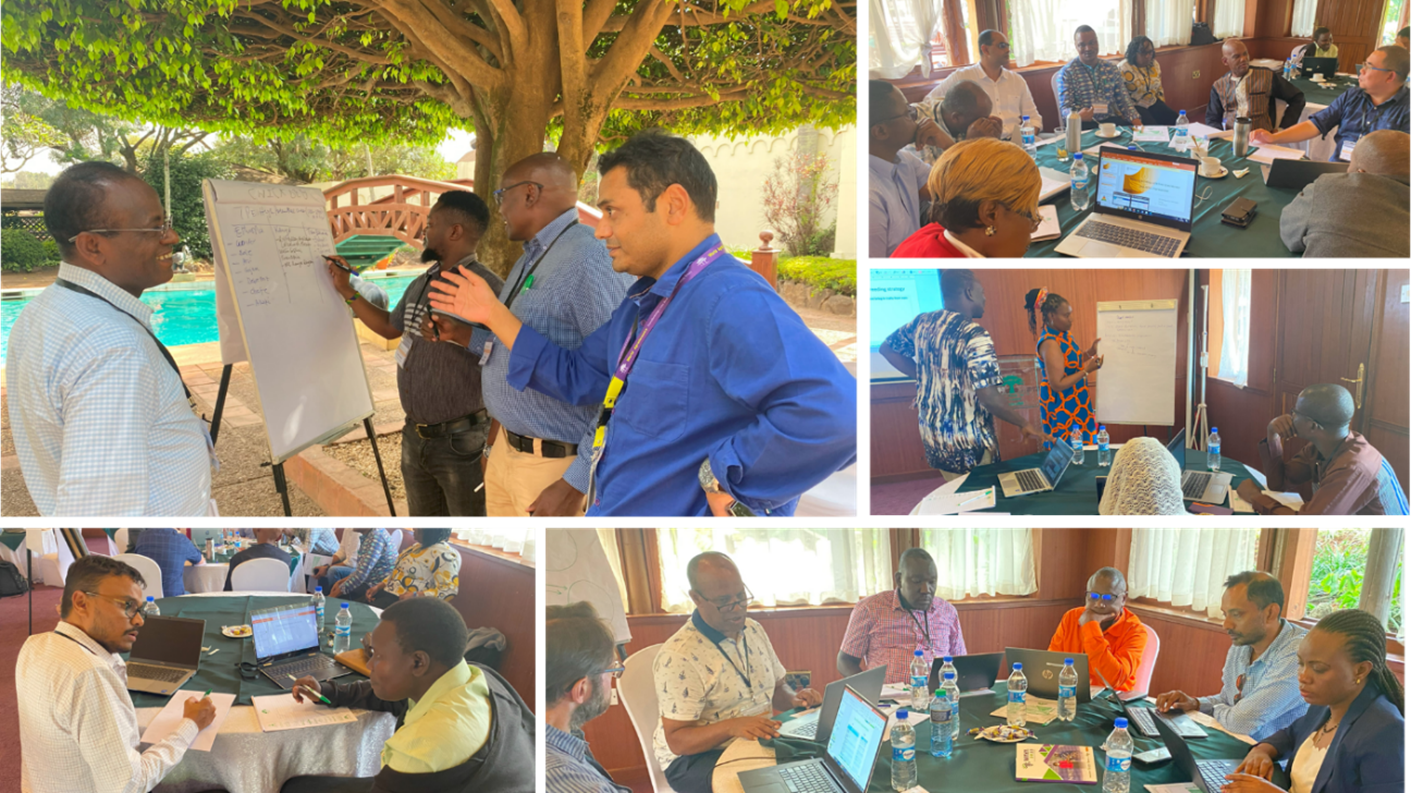
The value of partnership working was frequently highlighted by the speakers. Michael Quinn, lead of the CGIAR Accelerated Breeding Initiative, gave an overview of the initiative’s objectives and high-level goals in 2023, emphasizing the need to foster dialogue and alignment across breeding teams. He also underlined the importance of such hand-in-hand meetings for fostering cross-regional and cross-institute learning.
“Plant breeding has always been at the center stage of crop improvement, but it has become more and more important lately, and there is a need to bring more collaborative efforts across disciplines to realize higher genetic gains in our breeding programs,” said Kevin Pixley, Dryland Crops program director and Wheat program director during his virtual presentation.
“Interaction with the breeding leads from CIMMYT and the NARES in East and Southern Africa (ESA) and West and Central Africa (WCA) and other experts helped in cross learning from the advanced breeding programs,” said Maryam Dawud, plant breeder at the Lake Chad Research Institute in Nigeria. Such workshops are needed for developing optimized breeding pipelines, and we will need more such in-person workshops on advanced data analysis.”
Next steps for dryland crops
During the workshop, network partners came up with an optimized breeding pipeline incorporating advanced quantitative genetic and statistical principles aligned with the latest scientific advancements and market demands. The group further developed a six-month actionable plan split by region to address common bottlenecks across the crops, such as capacity building in data analysis, modernizing digital infrastructure, training and enhancing human capacity in the use of equipment, and managing staff turnover.
All these deliberations provided the network partners with better insights and hands-on-experience to design their breeding pipeline, outlining specific steps, responsibilities, and timelines for implementing the identified optimizations. This preparatory work will ensure there is a targeted and coordinated effort toward pipeline enhancement and accelerated genetic gain for dryland crops in the region.
Happy Daudi, head, Groundnut Research Program at Tanzania Agricultural Research Institute (TARI), who participated in the workshop, stated, “Bringing in multidisciplinary experts provided a great opportunity to integrate various concepts of population improvement, product development, and deploying advanced statistical approaches for optimizing our breeding pipeline for achieving higher genetic gains, and accelerated variety turn over.”
Thank you to the Bill and Melinda Gates Foundation, the United States Agency for International Development (USAID), and CGIAR, for their generous funding which made this workshop possible.
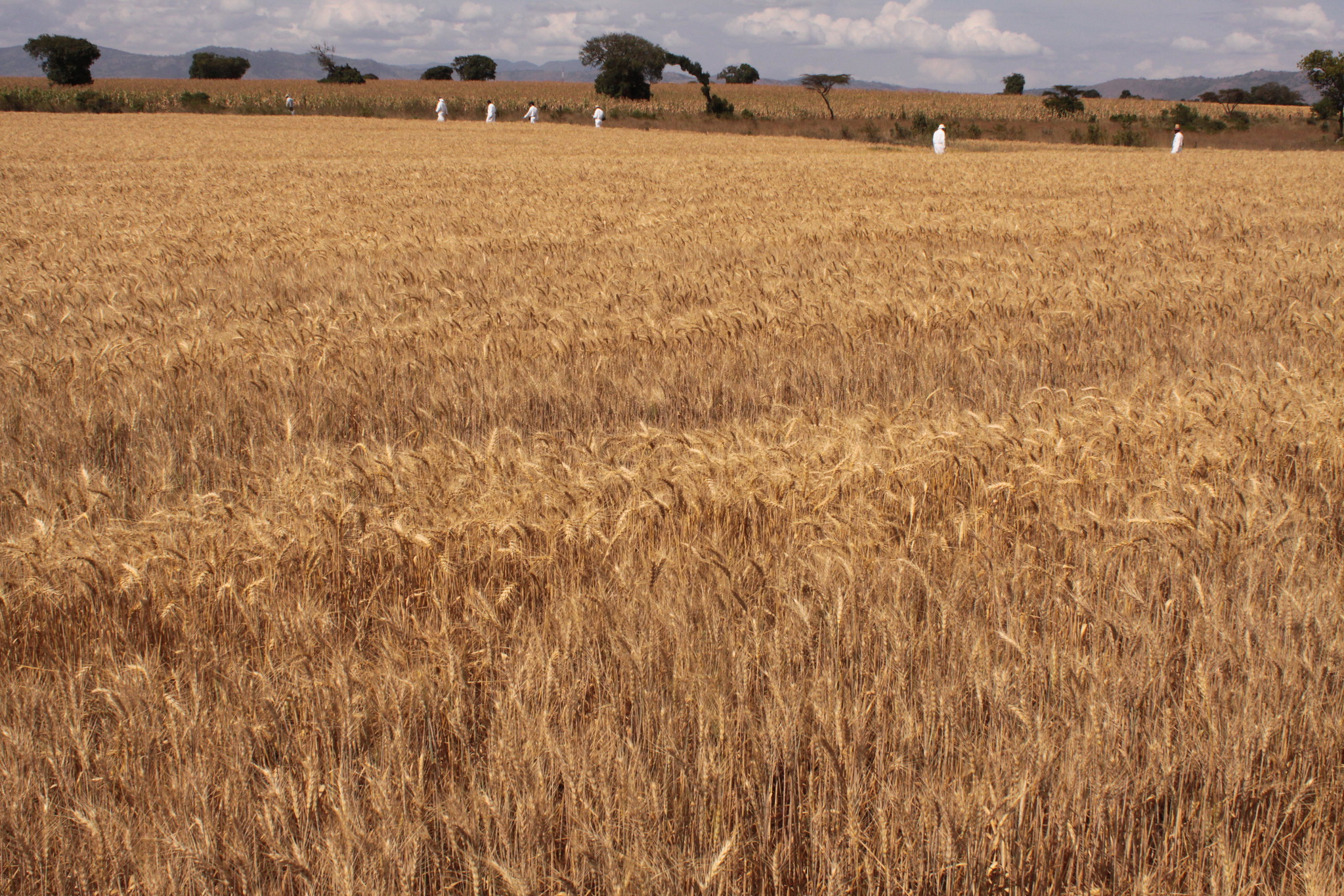
 Climate adaptation and mitigation
Climate adaptation and mitigation 